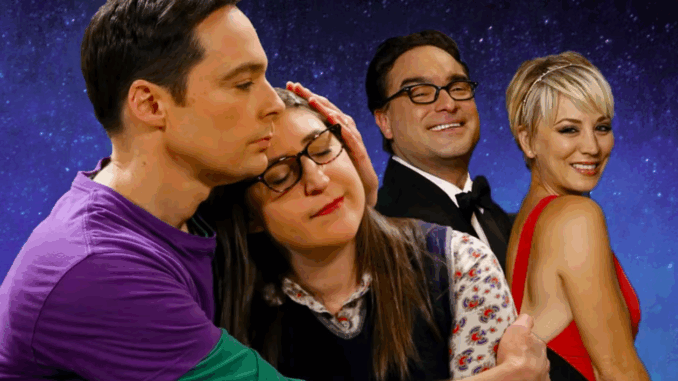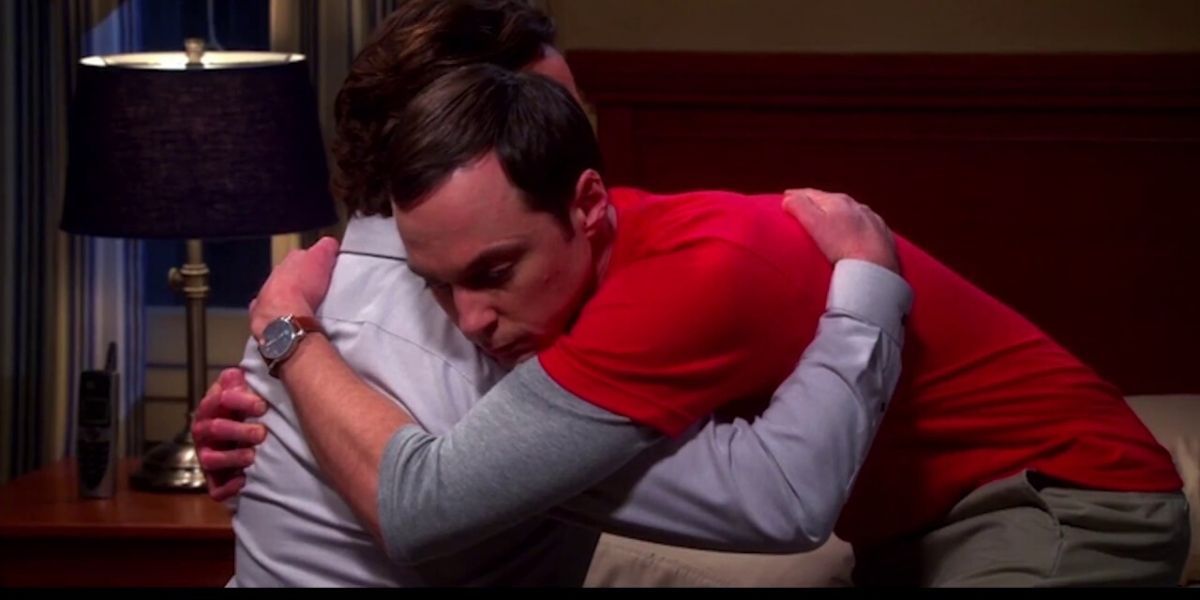
On the surface, The Big Bang Theory appeared to be about science, social awkwardness, and nerd culture crashing into the “real world.” But beneath the Star Wars posters and string theory lectures, the show’s most enduring emotional thread wasn’t romantic — it was platonic. The love story that truly held The Big Bang Theory together was between Leonard Hofstadter and Sheldon Cooper.
For twelve seasons, Leonard and Sheldon were roommates, colleagues, frenemies, and brothers in all but blood. Their bond — volatile, hilarious, and often bizarre — became the emotional glue that grounded the series. While Penny and Leonard’s on-again-off-again romance, or Sheldon and Amy’s unconventional love arc, got the big headlines, it was the subtle evolution of Leonard and Sheldon’s relationship that gave the show its heart.
Roommate Agreement: A Comedy Goldmine with a Deeper Core
When the show begins, Leonard is the everyman — nerdy, yes, but emotionally functional. He’s socially aware, romantically hopeful, and desperately trying to live a life beyond whiteboards and Halo tournaments. Then there’s Sheldon, his new roommate: brilliant, rigid, condescending, and utterly incapable of seeing the world through anyone else’s lens.
Their relationship starts with tension. Sheldon imposes the infamous “Roommate Agreement,” dictating everything from bathroom schedules to emergency evacuation procedures. Leonard mostly tolerates it, rolling his eyes and making sarcastic asides. The agreement becomes a running gag — but it also sets up their dynamic: Sheldon tries to control, Leonard tries to survive.
But something else is happening beneath the comedy. Leonard never gives up on Sheldon. He explains social norms, defuses conflicts, and includes Sheldon in his social life even when no one else would. And Sheldon, in his own stilted way, begins to depend on Leonard for everything — from food orders to emotional regulation.
The Brother He Never Had
As the series progresses, it becomes clear: Leonard is more than a roommate. He’s the only person who has consistently shown Sheldon love and patience without condition.
In many ways, Leonard becomes the surrogate family Sheldon never had. Sheldon’s childhood in Texas, with an emotionally distant father and an overbearing mother, left him isolated and misunderstood. Leonard, despite his own troubled relationship with his emotionally abusive parents, becomes the emotional constant Sheldon needs.
There are multiple scenes that hint at this quiet brotherhood. When Sheldon gets sick, he demands Leonard care for him. When he’s scared, he crawls into Leonard’s room. When Leonard is hurt, Sheldon expresses concern in his own strange, clinical way.
Their relationship is rarely sentimental, but it’s undeniably deep. When Leonard once threatened to move out, Sheldon panicked. Not because of logistics — but because his world, structured and safe, depended on Leonard’s presence.
The Fights That Revealed Love

Like any close relationship, Leonard and Sheldon fight — often. They argue about noise, hygiene, gaming habits, and refrigerator contents. But their clashes also reveal how much they care.
In Season 3’s “The Staircase Implementation,” viewers get a flashback of how they became roommates. It’s chaos from the start, but it ends with Leonard deciding to stay, even after being warned by an outgoing roommate that Sheldon is unbearable. It’s one of the earliest signs that Leonard sees something redeemable in Sheldon.
In Season 9, after years of tension, Sheldon offers Leonard a genuine apology for being difficult. “You’re my best friend,” he says, not with drama, but with rare, quiet sincerity.
Moments like these — when Sheldon lowers his guard and Leonard responds with compassion — are the emotional peaks of the show.
Why Their Bond Mattered More Than Romance
While The Big Bang Theory delivered its fair share of romantic arcs, Leonard and Sheldon’s relationship was the most consistent one. Romantic pairings broke up, got back together, married, and moved across the country. But Sheldon and Leonard endured.
They made each other better — not by changing who the other was, but by expanding each other’s world. Leonard learned patience, boundaries, and the value of stability. Sheldon learned empathy, compromise, and how to say “thank you” without a contract clause attached.
In a world that often elevates romance as the pinnacle of emotional connection, The Big Bang Theory reminded us that friendship — especially male friendship — can be just as transformative and meaningful.
A Goodbye That Said Everything
In the series finale, when Sheldon wins the Nobel Prize, he delivers a speech that stuns the audience — not for its brilliance, but for its vulnerability. He thanks his friends. He thanks Leonard. “You’re all my family,” he says, his voice cracking.
It was the full-circle moment the show had been building toward for twelve years. Not the punchlines, not the physics, not the romances — but the simple, awkward, beautiful fact that Sheldon Cooper learned how to love, and Leonard Hofstadter taught him how.